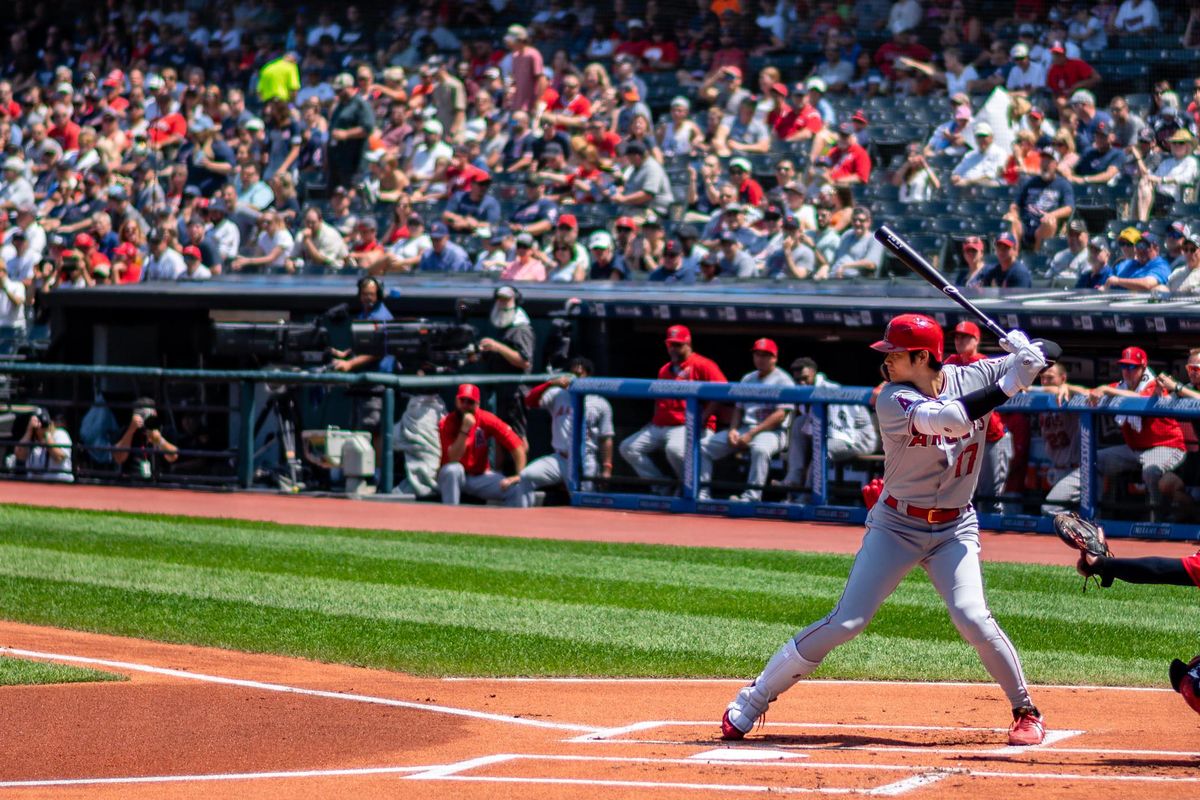On July 7th, Shohei Ohtani hit his 32nd home run of the year, a solo shot off of Boston Red Sox starter Eduardo Rodríguez, breaking Hideki Matsui's 17-year-old record for the most home runs hit in a season by a Japanese-born player. What is incredible about this hitting stat is that Ohtani broke the record in only 81 games — literally half an MLB season. Then add in the massive subplot that he is also the Angels' best pitcher and currently possesses an ERA+ of 132 (making him 32% better than the league average). When baseball has become exceptionally specialized, with players, coaches, and management becoming obsessed with the launch rate of swings and the spin rate of a pitch, Ohtani is breaking rational thinking by simply being the Modern Day Babe Ruth. His home runs get hit with such power and force; they are not only landing over the fence of ballparks but making an impact across the entire country and through continents.
Ohtani hits his 32nd homer of the season! (Sets new single-season record for Japanese-born player!)youtu.be
Baseball is known as the National Pastime. Yet, over the last decade, the game has become increasingly regional regarding general fan interest and rating viewership. While fans still care deeply about their home teams, the baseball megastar whom people tune into SportsCenter in the morning to see how they did the previous day, has seemingly gone away. Enter Ohtani, a man who can throw a baseball 100 Miles Per Hour and can hit home runs 450+ feet. Maybe the sneakiest detail about Ohtani is he is also one of the fastest baserunners in the MLB.
Ohtani is a must-watch player. His swing is like watching the Grim Reaper use his scythe to send a baseball to the nether realm. He sprints out of the box with every non-home run hit as if his life depends on it. Meanwhile, the ones that are going out of the park are known instantly by the sound of the bat. If you plan on taking the kids to the ballgame, make sure it is when the Angels are in town because they will get to see something special. Modern-day baseball loves to put players in boxes and label them as a known commodity, putting a somewhat limit on up-and-coming prospects. Ohtani's success will lead to many more players following in the trail of being two-way players over the next couple of decades. Undoubtedly, there is a ten-year-old out there watching what Ohtani is doing and they will try to be the next two-way success.
Shohei Ohtani Doing It All (Two Way Player) 2021 Highlightswww.youtube.com
Impact as a Japanese Player in America
After Ohtani broke Japanese Legend and former MLB All-Star Hideki Matsui's home-run record, Matsui came forth to heap praise on Ohtani as a once-in-a-generation talent. Even though Ohtani is a prodigal talent, he represents something bigger than himself for his country and culture. Japanese and Asian pitchers have integrated into Major League Baseball with more ease and less skepticism than hitters, specifically those whose specialty is power-hitting. Ohtani has crushed those notions. As time has gone on, he has adapted to the style of American pitchers and is obliterating anything in sight. More hitters from Japan, Korea, and other Asian countries may get signed to MLB teams due to Ohtani. Not to mention all the Asian-American youth in this country who have someone they can look up to. Jeremy Lin and Linsanity was a special moment in time that lasted a few weeks and had a monumental impact on so many Asian-American sports fans' lives. Ohtani is not Asian-American; however, he chose the Angels because he wanted to live in an area with people around him that felt like home. Imagine if Jeremy Lin had LeBron James or Kevin Durant's career? That is the potential for Shohei Ohtani.
Baseball is a game and watching Shohei Ohtani play is a unique experience. The biggest complaint about the game from outside viewers is that the game is slow and tedious. Ohtani is the opposite of that. Now more than ever, tune in to watch an Angels game because you might see something from Ohtani that you might never get to see in a baseball game again.

